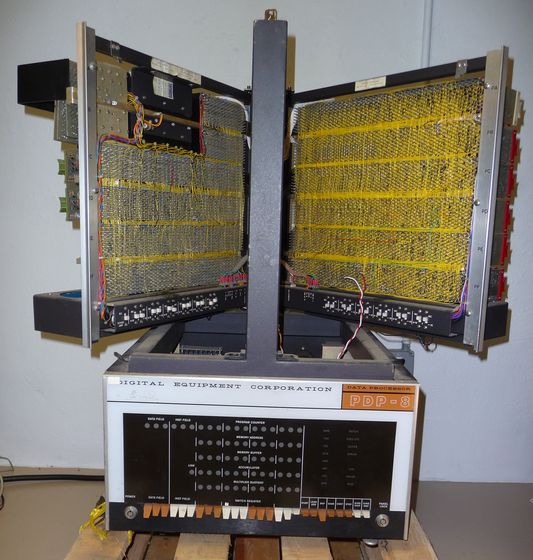Aviennca's Pupil
Banned
How would events in history be affected by the lack of computers and what would be the long term result such a gap in technological progress?
Living standards in the first world would be largely stagnant after 1960 once the gains from electricity, mass production, and internal combustion engines are exhausted. I don't believe we could've sent humans into space without computers.
We had typewriters in the 50s already and fax machines are digital technologies.I find it hard to believe you wouldn't get one of those room-sized computers at some point. It's just too useful to have around for so many purposes (engineering, military, etc.). An early computer is a logical advancement of finding easier ways to do math that began thousands of years ago with the abacus, in the form of combining it with electricity and vacuum tubes.
Why wouldn't it be possible to send people into space without computers? If you have a room full of computers (people whose job title is computer that is), you can solve the complex math and physics problems needed to shoot a person into orbit and retrieve them safely.
And while computers are integral to modern society nowadays and have been since the 90s at latest, I don't see how first-world living standards would necessarily be stagnant. You still have typewriters, fax machines, mechanical calculators, and cell phones, which will gradually filter their way into businesses and homes as production costs go down.
Wire transmission has been around since the 19th century, and the modern fax machine was patented in 1964.We had typewriters in the 50s already and fax machines are digital technologies.
We had typewriters in the 50s already and fax machines are digital technologies.
Even the absence of electricity won't do the job. Babbage's Difference and Analytical engines come to rule the world.I don't see people avoiding computers. Demand for atomation in industry all but gurantees them. You have to go back and remove the development of electrical engineering completely to butterfly this away.
Even the absence of electricity won't do the job. Babbage's Difference and Analytical engines come to rule the world.
American culture stagnates sometime around 1963 and there's a global nuclear war in October 2077.Perhaps another good question would be ... "What if the microchip had not been invented?"
Perhaps another good question would be ... "What if the microchip had not been invented?"


No computers mean no small chips that make the cell phones work. The Japanese for using fax machines in the 30sWe had typewriters in the 50s already and fax machines are digital technologies.
Don't forget the mimeograph.And the Pantelograph since the 1860's
The pantelegraph (Italian: pantelegrafo; French: pantélégraphe) was an early form of facsimile machine transmitting over normal telegraph lines developed by Giovanni Caselli, used commercially in the 1860s, that was the first such device to enter practical service, It could transmit handwriting, signatures, or drawings within an area of up to 150 × 100 mm.
https://en.wikipedia.org/wiki/Pantelegraph
Perhaps another good question would be ... "What if the microchip had not been invented?"
Painting quickly with a very broad brush, perhaps many civilizations on other planets never got around to the micro processor. What would their technology be like? They hit the wall. Never jumped over it. We have. Yikes!